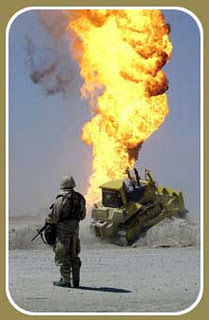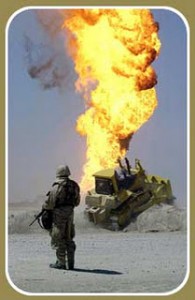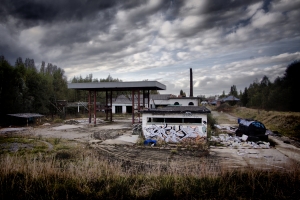By: Tom Hastings @ Hastings on Nonviolence
Environmental sustainability is one way we can help to prevent war. That, of course, is because no matter what the nominal reason for war, one underlying reason is often resource capture. Yes, it’s true that we say we hate them because they are infidels, or because they hurt our grandfathers, or because they are a different nationality, or any one of a number of announced reasons for attack, but the unstated objective, at least for the elites who direct the attack and manipulate the public, often aim to capture the coltan/ oil/ copper/ diamonds/ water/ agricultural land/ coal/ natural gas/ iron/ bauxite or whatever.
So, saving resources can help us blunt the piratical drive toward war. I was just in Memphis, Tennessee for a few days and it was a stunning counterpoint to my town, Portland, Oregon. I saw two bicycles the entire time there, on sidewalks. Bicycles on streets, I suppose, would have been on a suicide mission. That is in a southern town, with the climate capacity for a year-round bicycle commute. I suspect the support for war is much greater in Memphis than it is in Portland and the correlation is sensible. In Portland we would rather not attack other nations to steal their oil so we bike and take mass transit. We vote in politicians who will commit resources to those transportation alternatives. Someone told me they knew of one bike lane on one street in Memphis. Unbelievable. And the public city train system is…nonexistent. OK, they have three very cute tourist trolleys, but no real commuter trains. Portland is about 584,000 people; Memphis is 647,000. Why can’t they catch up to the basic city evolutionary path?
This is not to pick on Memphis in particular, though they clearly join much of the rest of the US who are far behind Portland. I suspect Memphis is normal for Tennessee, a state with no town in the greenest US 50 cities. Indeed, many states have no towns in that list and Oregon, Minnesota and California have multiple towns who made the cut. All three of those states are financially suffering, yet the public expects sustainability progress and gets it. It pays off in terms of quality of life and ability to weather those economic downturns. Oil prices affect us all, but affect a dependent town like Memphis more.
The low-hanging ripe fruit is there. We in the US produce something like 100 billion aluminum cans every year and recycle fewer than half of them. Planet-wide, some 1.5 million tons of aluminum are similarly wasted, incinerated, landfilled, or otherwise unrecycled and thus cause more mining for virgin bauxite. This means more use of energy, more environmental despoliation, and more conflict.
Nonviolence, Gandhi knew, was partly a function of constructive program, which was about local self reliance. When we recycle, reuse, bike and walk, and grow more of our own food, we make nonviolence more possible, more attractive, and more likely. The idea is a richer life, not painful poverty. Let’s start to associate green with abundance, not deprivation. Nonviolence should mean enrichment, not impoverishment. This world can work for all.






